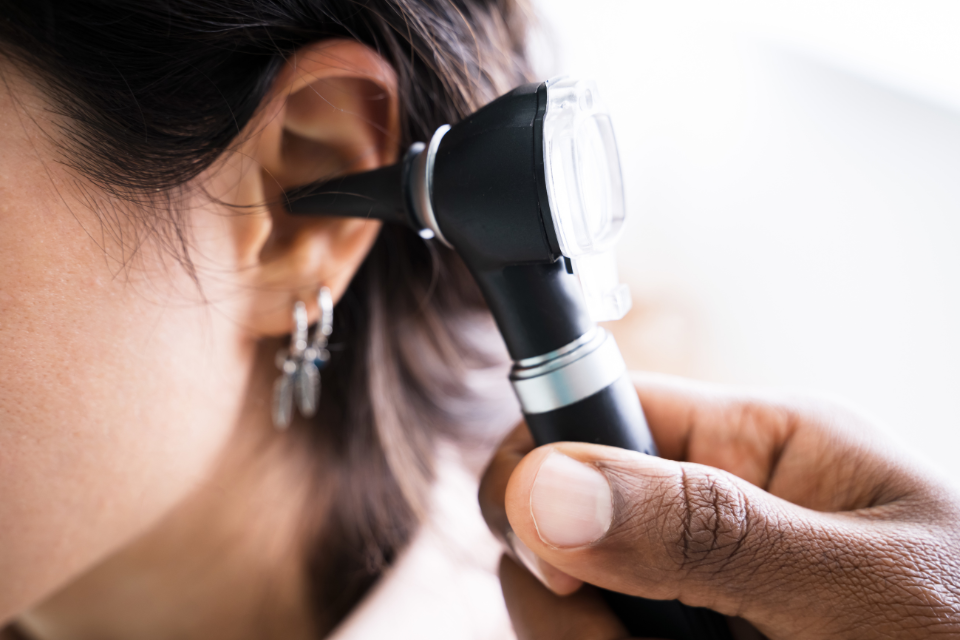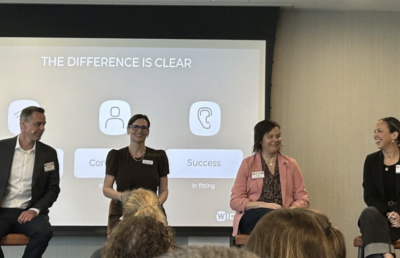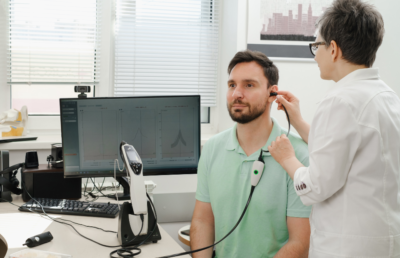When experiencing hearing loss, ear-related concerns, or balance issues, it can be difficult to know where to turn for help. Should you be seeing an ENT or an audiologist? Which care specialist is the correct one for your needs?
Understanding the differences between ear, nose, and throat doctors (ENTs) and audiologists could be the answer to finding the right care and the right solutions without delay.
What is the Difference Between an ENT and an Audiologist?
While there are some similarities and potential overlap between ENTs and audiologists, their roles have different expertise.
Simply put, an ENT identifies and treats medical conditions impacting the ears, nose, or throat. They have a specific focus on diseases, traumatic injury, and abnormalities in these three, connected areas of the body. They may also address nerve issues that impact head movement, the neck, or the senses.
An audiologist, on the other hand, can identify, diagnose, and treat concerns related to the auditory and vestibular regions of the ear. Audiologists deal with hearing loss, problems with balance and tinnitus, including the performance of hearing evaluations and fittings for devices like hearing aids.
Audiologists can also provide helpful and practical support to individuals coping with and adapting to hearing loss. For example, they may be able to counsel the patient or their family, providing advice on how to communicate and support each other through what can be a difficult transition or adaptation.
Similarly, an audiologist can offer recommendations on assistive technologies, like alerting systems and phones that are compatible with specific hearing aids.
When to see an ENT vs. an Audiologist
When experiencing hearing loss, an audiologist is your best choice. They can assess and determine whether or not your concerns are due to a problem with the auditory system.
But that may not be the end of the journey. It is possible that an audiologist will assess the situation and refer you to, or work together with an ENT for further evaluation or treatment as well.
If, for example, you are experiencing a ringing or buzzing in the ears. That can be caused by a medical concern like a tumor or other health conditions. However, usually, tinnitus has no known cause and must be managed by an audiologist. An audiologist is expertly trained to manage tinnitus using cognitive behavioral therapy or Lenire treatment.
It is worth noting that neither ENTs nor audiologists require a referral (unless required by your insurance company). For some conditions and complex cases, you may be required to see both an ENT and an audiologist to improve your outcomes.
Assess Your Hearing Health with Chicago Hearing Services
At Chicago Hearing Services, we provide compassionate, professional audiology services.
Hearing loss journeys are as unique as the individuals experiencing them and so we tailor our care to meet the needs of each patient that comes through the door as we want you to hear and feel your best.
If you’re experiencing symptoms of hearing loss, tinnitus, or have questions or concerns about hearing devices and assistive technologies, contact us today to book an appointment.





